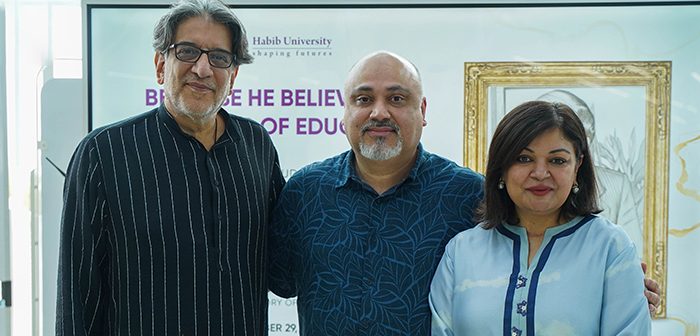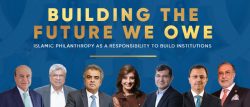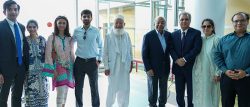Honoring a Legacy of Compassion and Integrity
Habib University announces the Muhammad Wadood Distinguished Endowed Scholarships, established by Ms. Zainab Wadood in memory of her late father. The endowment will provide sustained financial support for students from underserved backgrounds, particularly those facing disability, systemic inequity, or financial hardship, ensuring that generations of deserving students can pursue higher education.
“While many scholarships last only a few years, endowments endure,” said Wasif A. Rizvi, Founding President of Habib University. “The Wadood family’s gift will support generations of students, carrying forward their father’s vision of excellence. The seed planted today will grow far beyond any single classroom or building.”
For Ms. Wadood, the commitment to equitable access is deeply personal. Having navigated her own experience with hearing impairment, she understands the challenges faced by students whose potential often goes unseen. “Education is not merely a credential,” she shared. “It is a path to dignity, opportunity, and belonging. No student should have to struggle to be seen and heard.”
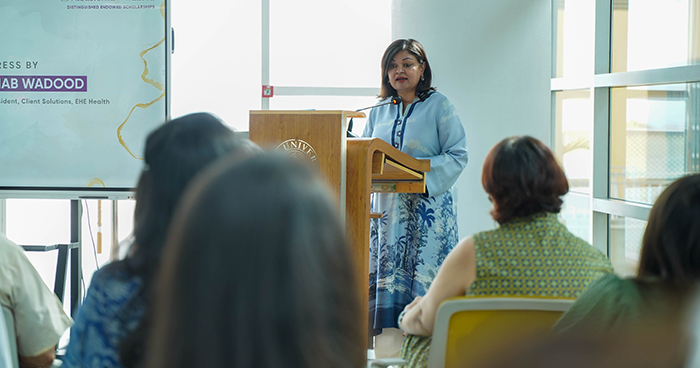
The scholarship also honors the values of discipline, courage, and integrity embodied by the late Muhammad Wadood, whose journey from modest beginnings in Allahabad to a life of leadership in South Africa continues to inspire excellence and service. Through this act of remembrance, his legacy will now empower students to reimagine their futures and communities.
Advancing Habib University’s Vision for Transformative Education
Building on this spirit of access and transformation, the Muhammad Wadood Distinguished Endowed Scholarships reflect a broader mission that aligns deeply with Habib University’s vision for higher education in Pakistan.
Pakistan, one of the world’s youngest nations and with nearly two-thirds of its population under thirty, stands at a critical juncture. While its youth represent immense potential, millions remain locked out of higher education due to structural inequities. Habib University was founded to challenge this imbalance by redefining what higher learning can mean in an unequal society.
Education as a Collective Moral Responsibility
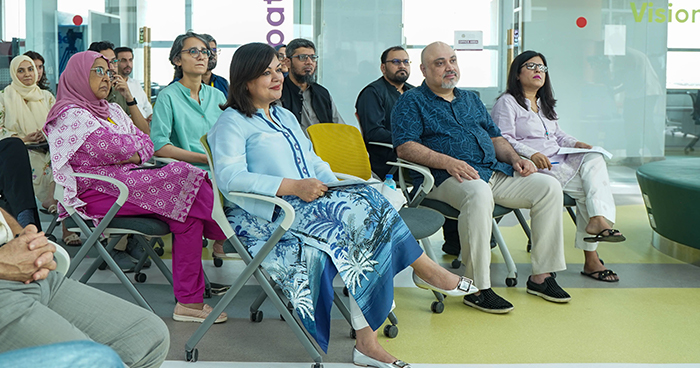
Today, 85% of Habib students receive financial assistance, much of it through Zakat-based funding, reflecting the University’s belief that education is a collective moral responsibility. With a student-to-faculty ratio of 11:1 and a globally diverse faculty, Habib nurtures intellectual growth, mentorship, and ethical formation, reaffirming that education must serve as a public good, not a private privilege.
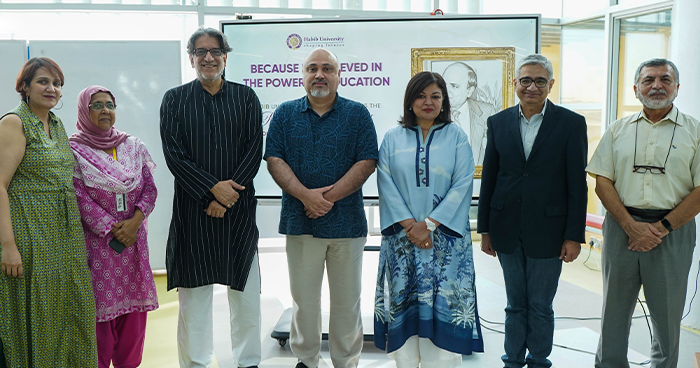
In an era marked by widening inequality, Habib University stands as a counter-narrative: an institution where education becomes an act of repair and moral reconstruction. Through its unique financial support model and dedication to access, Habib empowers students to become leaders and innovators shaping a more just and thoughtful world.
Each endowed scholarship, and every contribution from its Mohsineen strengthens not only the lives of individual students but also the ethical and intellectual fabric of society.

